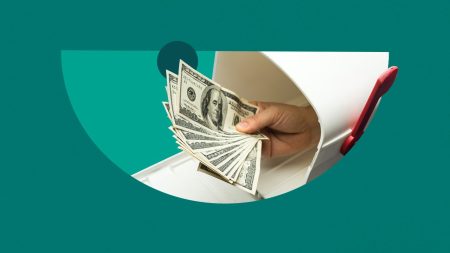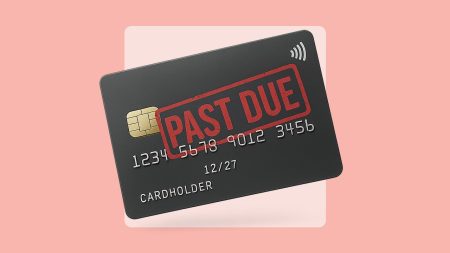Pensions and 403(b) plans represent two distinct ways to save for retirement, each with its own structure and advantages. A pension provides a predictable income stream in retirement, usually funded and managed by an employer. A 403(b), on the other hand, relies on employee contributions and investment growth, giving individuals…
When you think about estate planning, wills, trusts and life insurance usually top the list. But annuities deserve a spot in the conversation, too. Beyond providing reliable income in retirement, annuities can ensure your spouse keeps receiving steady checks, transfer wealth to heirs and help sidestep probate. Still, annuities come…
I’m 63 With $1.35 Million in My IRA and a $2,200 Social Security Check. What’s My Retirement Budget?
By your 60s, most of your retirement foundation is already in place. While you may still have a few years to save, building significant new wealth is less likely unless you continue working during retirement. This stage typically shifts focus to taxes, withdrawals, Social Security and budgeting. To help you…
Getty Images / Win McNamee / Staff Key takeaways The Federal Reserve’s September rate cut is likely the beginning of lower yields on CDs and other deposit accounts. Locking in a CD now can secure today’s higher rates, which are still outpacing inflation. Don’t rush to put money into a…
Personal Finance
The big new fees JPMorgan Chase is planning to charge some financial technology companies may well trickle down to consumers,…
With artificial intelligence beginning to eat away at many white-collar entry-level jobs, and the unemployment rate for recent college graduates…
If a society is going to make intelligent choices in policy, it helps to understand reality, which includes facts and…
New York startup Casap has raised $25 million in new funding to help banks tackle the thorny problem of credit…
Featured Articles
Life throws curveballs. And often those curveballs mean you’re spending your hard-earned savings or you’re borrowing money instead. It can feel like a catch-22: Creating savings should help you avoid costly borrowing, but spending it equals losing it and going back to square one. So…
Dept Managmnt
Key takeaways A divorce decree outlines which spouse is legally responsible for each debt after the divorce is completed. States either have community…
Banking
When it comes to selling coconut water to the health obsessed, New York’s Vita Coco has served up a master class, schooling even…
Credit Cards

All News
Key takeaways The best buy now, pay later (BNPL) apps allow you to spread the cost of a purchase over several weeks or months without interest. Bankrate’s top BNPL picks include Affirm, Afterpay, PayPal, Sezzle and Zip. Most buy now, pay later plans offer no-interest payment options. Many retailers have…
Key takeaways The Ink Business Cash® Credit Card and the Ink Business Preferred® Credit Card are two options within the Chase card family that offer business owners rewards on everyday business spending. The Ink Business Cash is likely a stronger choice if you spend under $25,000 in bonus categories such…
Key takeaways Getting preapproved for a credit card helps assess your chances of being approved for a card without impacting your credit score. Chase offers several preapproval options, including a preapproval tool and specialized preapproved offers. Most Chase cards require good to excellent credit for approval, so make sure your…
RomanBabakin/Getty Images Speeding in the Garden State will cost you more than just time. It can hit your wallet with fines, surcharges and higher insurance premiums that stick around for a while. Depending on how fast you’re driving and where the violation takes place, the price of a New Jersey…
Images by GettyImages; Illustration by Hunter Newton/Bankrate Key takeaways Refinancing your mortgage includes expenses like closing costs, just as your original mortgage did. Opting for a no-closing-cost refinance can save you money upfront, but you’ll likely pay a higher interest rate in return. Comparing offers from multiple mortgage lenders can…
Drs Producoes/Getty Images Key takeaways When you sell mutual fund shares, you will be subject to taxes on the gains. You may owe taxes even if you still own a mutual fund. To minimize taxes on mutual funds, watch what you buy and how, hold shares for a long time…
One of the most popular questions to ask during retirement planning is “How much money do I need to retire?” The question is an understandable one, but it may be easier to think about the income you’ll need to generate during retirement in order to meet your spending goals. Answering…
Juanmonino/Getty Images: Illustration by Issiah Davis/Bankrate Key takeaways A lender credit is money you receive from a mortgage provider to help cover closing costs, in return for a higher interest rate. While a lender credit helps reduce your upfront homebuying costs, you’ll end up paying more interest on the loan…
When buying a home as a couple, your credit scores, income, and existing debt all play a major role in mortgage approval and loan terms. Lenders review each person’s credit separately, use the lower score for qualification, and consider your combined debt-to-income ratio if applying jointly. How to Financially Prepare…
The credit card delinquency rate has decreased for three straight quarters after hitting its highest point in more than a decade. According to the Federal Reserve, 3.05 percent of credit card balances were delinquent (30+ days past due) as of Q1 2025. The recent peak was 3.24 percent in the…










































